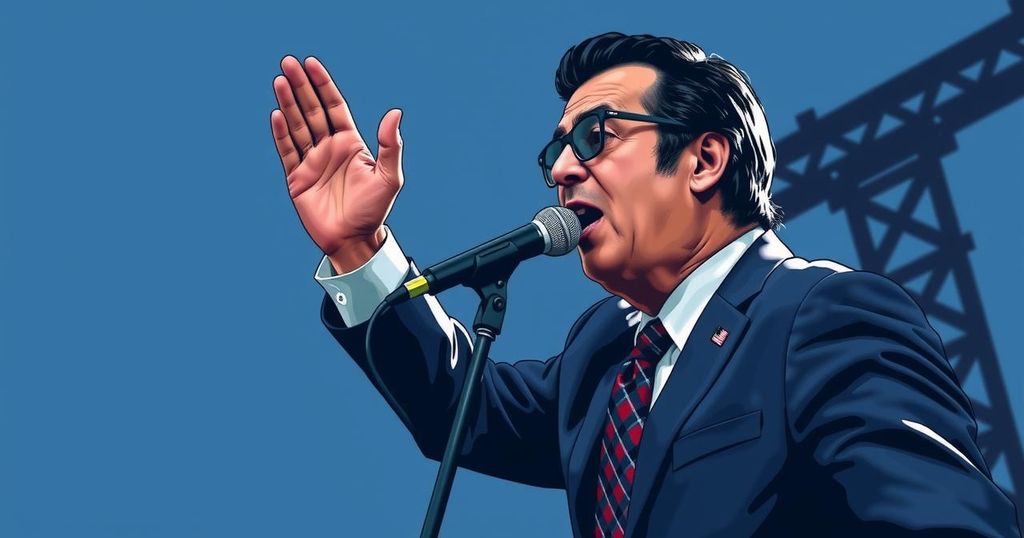Uruguay’s Conservative Government Concedes to Left-Wing Challenger in Elections

Uruguay’s governing conservative coalition has conceded the presidential run-off to left-wing candidate Yamandu Orsi. Alvaro Delgado acknowledged the defeat during a speech, reflecting a notable political transition. Orsi’s moderate policies are expected to build upon the Broad Front’s earlier legacy of social reforms. The election is part of a global trend of voter discontent against incumbent parties amid economic strife.
In a significant political shift, Uruguay’s governing party has conceded defeat in the recent presidential run-off election, endorsing left-wing challenger Yamandu Orsi. Alvaro Delgado, the candidate of the conservative coalition that has been in power since 2020, expressed his congratulations to Mr. Orsi during a speech at his campaign headquarters, stating, “with sadness, but without guilt, we can congratulate the winner.” This concession comes as voting results continue to be tabulated, with approximately 57% of official votes already counted.
With Mr. Orsi leading with about 49% of the provisional tally against Mr. Delgado’s 46%, this transition marks the end of the conservative government that ended a 15-year rule by the Broad Front, known for its progressive reforms including the legalization of abortion and same-sex marriage. Current President Luis Lacalle Pou publicly recognized Mr. Orsi as president-elect, offering his assistance in facilitating a smooth transition of power. Voter turnout for the run-off was noteworthy, standing at 89.4%, consistent with the previous electoral round.
Mr. Orsi, known for his moderate approach, aims to advance a “new left” in Uruguay without implementing radical changes. His platform includes a continuation of market-friendly policies and expansive welfare programs historically associated with the Broad Front. The result of this election reflects a broader trend as voters globally express dissatisfaction with incumbent governments amid post-pandemic economic challenges. As Uruguay prepares for new leadership, the focus will likely remain on collaborative governance and social welfare improvements.
Uruguay’s governance has historically oscillated between left and right, with the Broad Front leading from 2005 until 2019. The conservative National Party, under Luis Lacalle Pou, took power in 2020. During its tenure, the party confronted challenges such as economic hardship exacerbated by the pandemic. The recent electoral outcomes reveal a shift in voter sentiment as citizens seek solutions to recurring issues such as poverty and public safety, leading to the election of Mr. Orsi from the Broad Front once again, a return to left-leaning governance after a brief conservative stint. This political transition within Uruguay is part of a larger pattern observed in various countries where incumbents are facing mounting pressure in their governance.
The recent concession by Uruguay’s ruling party signifies a substantial change in the political landscape, with Yamandu Orsi from the Broad Front emerging victorious. His moderate stance suggests continuity in governance rather than the drastic changes witnessed in other countries. This election not only highlights the electorate’s desire for renewed leadership but also reiterates the importance of addressing ongoing social and economic challenges in both local and global contexts.
Original Source: www.expressandstar.com








